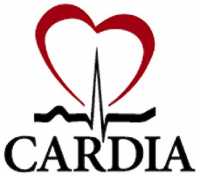Author Interviews, Heart Disease, JAMA, Opiods, Surgical Research, University of Pennsylvania / 20.06.2020
Significant Number of Patients Develop Persistent Opioid Use After Cardiac Surgery
MedicalResearch.com Interview with:
Chase Brown, MD
Associate Fellow, Leonard Davis Institute of Health Economics
Integrated Cardiac Surgery Resident
Hospital of the University of Pennsylvania
Nimesh D. Desai, MD, PhD
Director, Thoracic Aortic Surgery Research Program
Associate Professor of Surgery
Hospital of the University of Pennsylvania
MedicalResearch.com: What is the background for this study?
Dr. Chase Brown: Opioid use in the United States is a public health emergency. We know that opioids prescribed after general surgery operations to patients who never received them within the year prior to their surgery are at increased risk for continuing to take opioids months later. However, this has not been studied in patients undergoing cardiac surgery, who often times have more severe post-operative pain.
Our goal in this study was to determine how many patients after cardiac surgery and are opioid naive are continuing to take opioids within 90-180 days after their surgery. (more…)

























 Deborah M Eaton
Doctorate Student / Research Assistant
Temple University
MedicalResearch.com: What is the background for this study?
Response: Heart failure (HF) with preserved ejection fraction (HFpEF) accounts for approximately 50% of cases of HF and to date clinical trials with HFpEF patients have failed to produce positive outcomes. Part of this is likely due to the lack of HFpEF animal models for preclinical testing. Our lab addressed this gap in knowledge by developing an animal model that mimics critical features of the human HFpEF phenotype. We performed an in-depth cardiopulmonary characterization highlighting that the model has characteristics of human disease. We then tested the effects of a pan-HDAC inhibitor, vorinostat/SAHA, in collaboration with Dr. Timothy McKinsey, who is an expert in HDAC inhibitors and recently published work1 that laid the foundation for this study.
Deborah M Eaton
Doctorate Student / Research Assistant
Temple University
MedicalResearch.com: What is the background for this study?
Response: Heart failure (HF) with preserved ejection fraction (HFpEF) accounts for approximately 50% of cases of HF and to date clinical trials with HFpEF patients have failed to produce positive outcomes. Part of this is likely due to the lack of HFpEF animal models for preclinical testing. Our lab addressed this gap in knowledge by developing an animal model that mimics critical features of the human HFpEF phenotype. We performed an in-depth cardiopulmonary characterization highlighting that the model has characteristics of human disease. We then tested the effects of a pan-HDAC inhibitor, vorinostat/SAHA, in collaboration with Dr. Timothy McKinsey, who is an expert in HDAC inhibitors and recently published work1 that laid the foundation for this study. 



